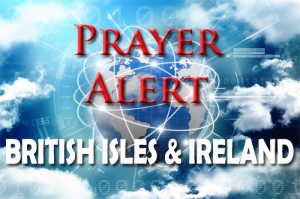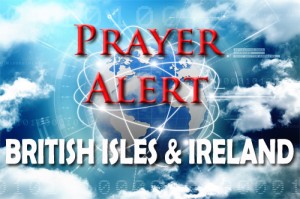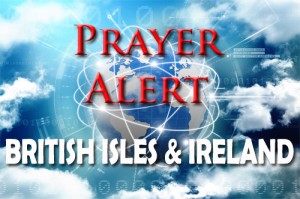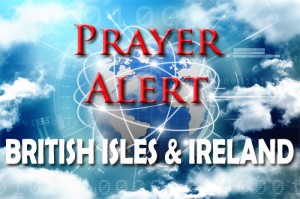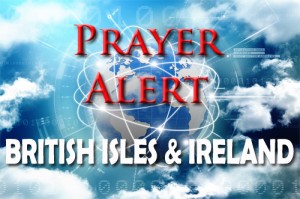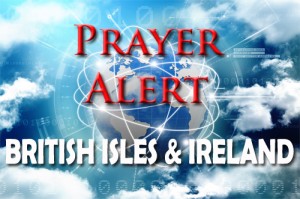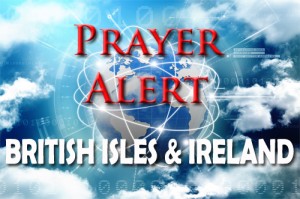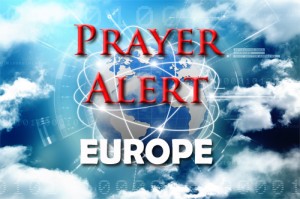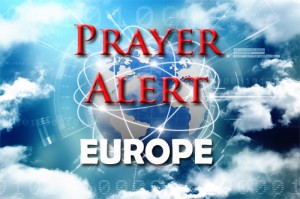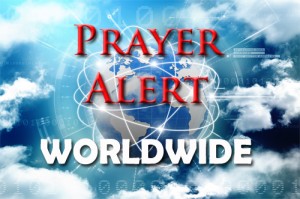
David Fletcher
David Fletcher is Prayer Alert’s Editor.
He is part of a voluntary team who research, proof-read and publish Prayer Alert each week.
If you would like to make a donation towards our running costs, please click here.
President Trump’s ‘working’ visit to the UK has attracted large-scale protests, as activists have had plans for major demonstrations laid out for months. The police response is the biggest since the riots in London after Mark Duggan’s death. Amnesty International said thousands will be making their voices heard: ‘In the 15 months of his presidency, we've seen a deeply disturbing human rights roll-back - including the discriminatory travel bans, a reckless announcement on Jerusalem, harmful policies on refugees, women's rights and climate change. He has shown an impatience bordering on intolerance towards peaceful protests, the media, and even the democratic process itself. So his visit to Britain is an important opportunity to underline the importance of free speech and the right to protest.’ A spokesman said police forces had worked together on a significant, multi-faceted security operation supporting the presidential visit. See
As the Government revealed details of its EU withdrawal plans, Brussels has warned Theresa May that the proposals must be workable in order to avoid a no-deal scenario. UK’s new Brexit secretary, Dominic Raab, is insisting the Government white paper sets out exit aims while being practical, respecting the referendum result, and backing business. However, chief Brussels negotiator Michel Barnier said the proposals must conform to EU rules and not create extra costs, and he told business leaders to prepare for a no-deal scenario.
Vehicles were stolen and torched during disorder linked to loyalist bonfires. A pipe bomb exploded close to a police operation in Belfast. Police were warned that loyalist paramilitaries were planning to ‘orchestrate and participate in serious disorder’. There were nights of disorder in Londonderry. Petrol bombs and missiles were thrown. Hundreds of fires were lit at midnight to usher in the 12 July Orange parades. Masked men used burning cars to block roads close to the Ulster Hospital. A bus with passengers was hijacked before being set alight. Security alerts resulted in main roads being closed, while one incident prevented passengers from leaving Belfast City Airport. Fire and Rescue Service had received 327 emergency calls by 01:00 on 12 July. Dissident republicans were blamed for firing six shots at police with an automatic weapon. The police are treating the incident as attempted murder.
Four people were arrested when an estimated 4,500 people marched through the streets of Glasgow on on 7 July as part of the annual Orange Walk. A priest was attacked outside St Alphonsus’ church on Stevenson Street as the congregation gathered for afternoon mass while the marchers passed by. A worshipper who saw the incident said, ‘The priest was spat at, verbally abused, and also assaulted by a baton. I was disgusted. I eventually got hold of an officer after screaming at her to get resources to protect him.’ It is not known if the priest reported the incident to the police, or if it was another member of the public. A police spokesperson said, ‘We can confirm we are investigating reports of an assault on a man outside a church in Glasgow at around 4.20 pm on Saturday’.
Rod Liddle, of the Spectator, spoke about gay conversion therapy and the Government proposals making it illegal saying, ‘This is all at the behest of campaigning bodies like Stonewall, and their insistence that an alternative opinion to theirs should be made illegal’. He added, ‘Gay conversion therapy has made the lives of thousands of people happier. I spoke to one chap who had considered himself gay for much of his twenties and thirties, was uncomfortable about it, and is now straight and happy. Nobody is suggesting that all gay people might benefit from it. Nobody is questioning the right of gay people to live happily, free from discrimination. Yet because some gay people are so intolerant of any views which differ from their own, they wish to make these views illegal.’
Adverts on buses promoting a church-run event in Blackpool featuring Franklin Graham are being removed after a number of complaints were made. Blackpool Transport, which oversees the buses, claimed the ads ‘resulted in heightened tension’. A number of people had taken to social media to claim that he would be preaching hate and homophobia at the event, due to take place at the city's Winter Gardens in September. Jane Cole of Blackpool Transport said, ‘The removal of these adverts is as a result of us listening to and acting on customer and public feedback, which we aim to do at all times. Blackpool Transport is a proud ongoing supporter of the Pride and LGBT+ communities, and in no way did we intend to cause any distress or upset.’ Graham said, ‘I'm not coming to preach hate, I'm here to preach about a Saviour - Jesus Christ.’
Police have launched a murder inquiry after Dawn Sturgess died following exposure to the nerve agent Novichok in Wiltshire. Her relatives are receiving support from specially-trained family liaison officers. Professor Paul Cosford said, ‘As a precaution we still advise the public not to pick up any strange items such as needles, syringes or unusual containers.’ The death of Dawn Sturgess, a British citizen on British soil, now changes the investigation to a murder inquiry, with all the diplomatic and security implications that carries as Britain blames Moscow for the original attack in March.
President Trump’s seventh foreign trip of his presidency took him to Brussels NATO meetings, where he called members of the alliance ‘delinquent’ in their defence spending and insisting they increase it ‘immediately.’ The NATO summit focused on ‘Make Peace Great Again’, but Trump's provocative comments aimed at Germany amplified the unease and detracted from the summit's goal of projecting unity in the face of Russian aggression (see World article on Israel/Russia/Syria). However Trump and NATO leaders did agree to bolster their defence and deterrence capabilities to head off Russian threats. In both Brussels and the UK thousands have shown their negative opinions of president, stating, ‘He is not welcome because he predicts a world of war, detains children in cages, has discriminatory travel bans, and policies on women's rights and climate change. See
NATO leaders moved beyond the demands of Donald Trump for higher defence spending, and focussed on ending the long war in Afghanistan, in the second day of a summit in Brussels underscored by transatlantic tensions. They welcomed non-NATO partners, including Afghan president Ashraf Ghani and Ukraine's Petro Poroshenko, to focus on policy rather than politics. On the first day, Theresa May had announced an additional 440 personnel for the Resolute Support mission in Afghanistan, saying, ‘I think that shows when NATO calls, the UK is one of the first to step up.’ NATO chief Jens Stoltenberg wants leaders to agree to fund Afghan security forces until 2024, despite public fatigue in Western countries about their involvement in the conflict. US officials told Reuters, ‘Washington is preparing another review of strategy’, a year after Trump begrudgingly agreed to extend involvement in the 17-year-old war.
Israeli prime minister Benjamin Netanyahu told Russia that Israel would not seek to topple its ally, Syrian president Bashar al-Assad, but Moscow should encourage Iranian forces to quit Syria. This happened just hours after Israel shot down the third Syrian drone that had penetrated its airspace recently, underscoring the frontier’s volatility. Israel is on high alert as Assad’s forces advance on rebels in the Golan Heights (land which Israel captured from Syria in 1967 and annexed in a move not recognised internationally). Israel worries that Assad could let his Iranian and Hezbollah reinforcements entrench near Israeli lines or that Syrian forces may defy a 1974 Golan demilitarisation. Russia has an active interest in seeing a stable Assad regime, and Israel want the Iranians out. These aims can clash or align. Israel will not get involved in Syria’s civil war, but said they will ‘act against anyone who acts against us.’

